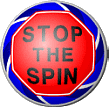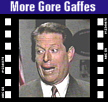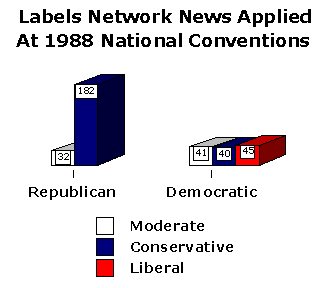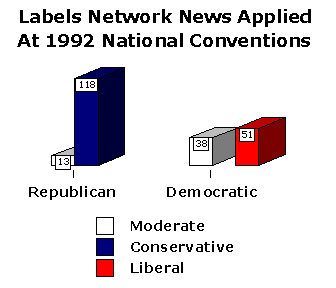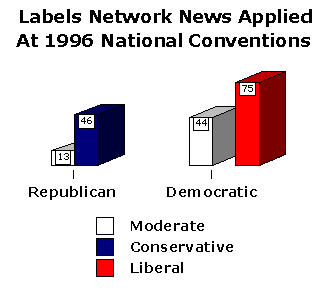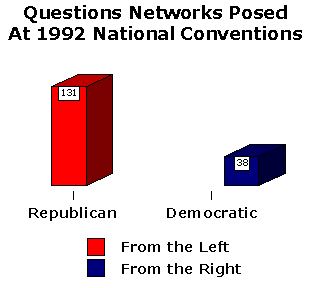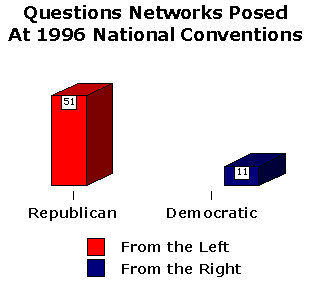|
|||||||||||||||||||||||||||||||||
|
|
|||||||
 |
||||||||||||||||||||||||
|
||||||||||||||||||||||||
 |
||||||
|
||||||
 |
||||||||||||||||||
|
||||||||||||||||||
 |
||||||||||||
|
 |
||||||||||||||||||||||||
|
||||||||||||||||||||||||
 |
|||||||||||||||
|
|||||||||||||||
|
As we have since 1988, the Media Research Center provided one-of-a-kind analysis of media bias in network coverage of both the Republican and Democratic National Conventions, only this year we turned up the heat by providing twice-daily updates. Democratic Convention Editions, Friday, August 18: Thursday, August 17: Wednesday, August 16: Tuesday, August 15: Monday, August 14:
Republican Convention Editions, Friday, August 4: Thursday, August 3: Wednesday, August 2: Tuesday, August 1: Monday, July 31:
Videos
History of Liberal Bias The Media Research Center has analyzed liberal media bias in television coverage (ABC, CBS, NBC, CNN and PBS) of the Republican and Democratic National Conventions since 1988. This page presents an overview of MRC’s findings in two important areas — frequency of use of ideological labels (such as conservative or liberal) and agenda of questions correspondents posed to convention participants — for all networks combined, by year. To access this data for individual networks, click on a your desired network from the Network By Network Analysis below. And for even more information, be sure to check out MRC's newest Special Report, "Four Campaigns, Eight Conventions... But Just One Spin."
Use of Ideological Labeling Tagging political parties, platforms and candidates with ideological labels becomes an issue of media bias when anchors and correspondents apply labels in an imbalanced manner. And that is exactly what the networks have done in covering national political conventions since 1988: overall, Republicans were labeled "conservative" twice as often (346 times) as Democrats were labeled "liberal" (171 times), while Democrats were labeled "moderate" more than twice as often (123 times) as Republicans (58 times).
Agenda of Questions Posed Balanced reporting requires that correspondents periodically don Devil’s advocate hats. One of the most effective ways of doing this is to pose challenging questions to interviewees — to ask conservative/Republican-agenda questions of Democrats and liberal/Democratic-agenda questions of Republicans. Yet the data show that since 1988, networks have failed miserably in asking an balanced number of challenging questions of representative of both political parties: overall, Republicans were asked challenging (liberal/Democratic-agenda) questions more than three times as often (202 times) as Democrats were asked challenging (conservative/Republican-agenda) questions (60 times).
Network
By Network Coverage
Campaign 2000 Back to Campaign 2000 Home Page
Home | News Division
| Bozell Columns | CyberAlerts |


